Hong Kong makes a comeback as an international financial centre
As part of Lianhe Zaobao’s “Seeing the New Hong Kong” series, marking five years since the enactment of Hong Kong’s national security law, associate China news editor Fok Yit Wai takes a look at Hong Kong’s status as an international financial centre. Will the city be able to grasp new opportunities amid the China-US rivalry and the mainland’s crackdown on several sectors?
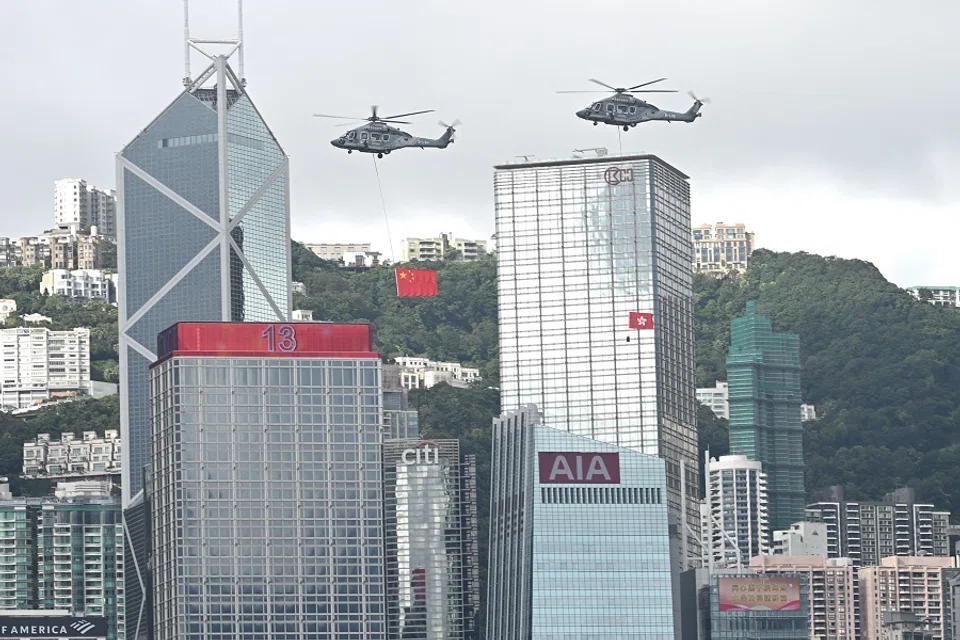
Since 2020, Hong Kong’s label as one of the world’s leading international financial centres has come under scrutiny and lost its shine.
In 2023, Hong Kong’s initial public offering (IPO) rankings fell to sixth place globally, behind India and Indonesia. The Hang Seng Index recorded annual declines for four consecutive years since 2020, with losses ranging from 3% to 15% each year. Last year, India’s stock market capitalisation overtook Hong Kong’s for the first time.
Some internet users mockingly referred to Hong Kong as “ruins of an international financial centre”, while a well-known investor bluntly warned, “Cherish your life — stay away from Hong Kong stocks!”
In February last year, former Morgan Stanley Asia chairman Stephen Roach even declared that “Hong Kong is over”.
Fast forward to 2025, and Hong Kong has finally shaken off its gloom and made a strong comeback.
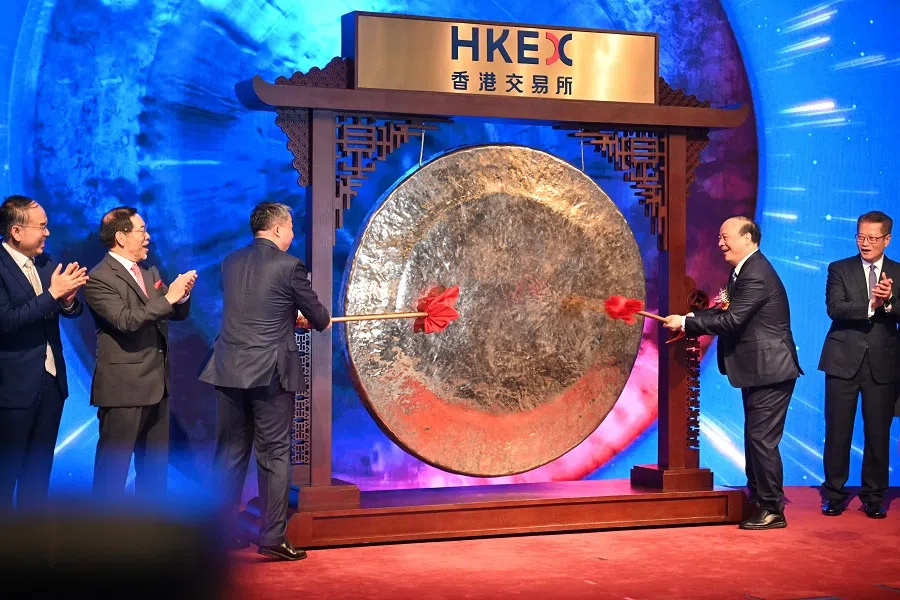
On 20 May, the world’s largest battery manufacturer CATL rang the gong at the Hong Kong Stock Exchange to mark its listing, raising HK$41 billion (US$5.22 billion). This marked the largest IPO in Hong Kong in recent years and the biggest IPO globally so far this year, allowing Hong Kong reclaim the top spot in global IPO rankings for the first half of the year, with nearly HK$90 billion raised.
Fuelled by a surge of capital inflows, the Hang Seng Index has risen by 22.7% as of 30 June. In the first five months of this year, the average daily turnover of Hong Kong stocks exceeded HK$240 billion, marking a 120% year-on-year increase. In contrast, the US S&P 500 Index has remained flat over the same period.
In an interview with Bloomberg earlier this month, Roach admitted he was wrong and retracted his claim that “Hong Kong is over”.
He had originally attributed Hong Kong’s supposed decline to three main factors: local politics, US-China competition and the Chinese mainland’s economic performance.
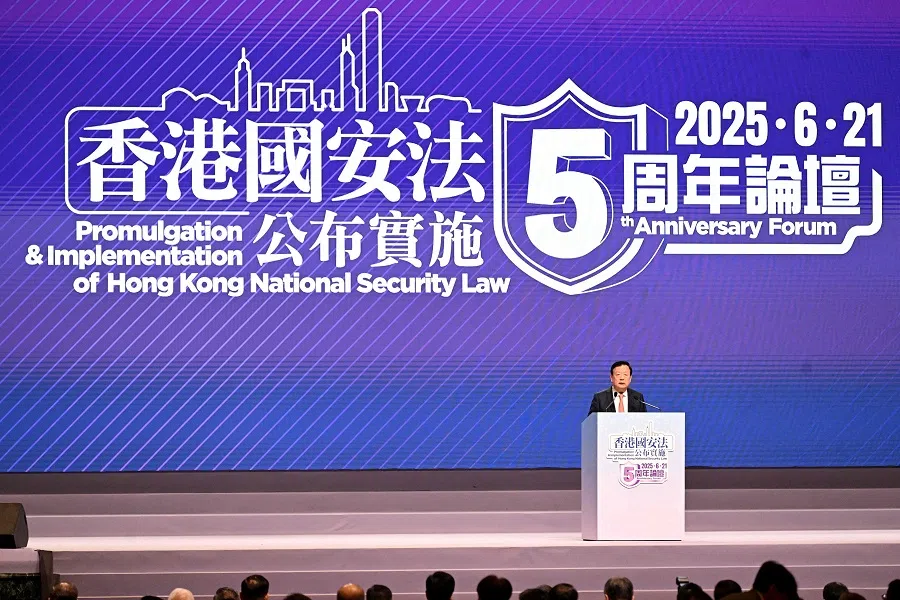
Politics refers to the implementation of the Hong Kong national security law in 2020, which many believe transformed “one country, two systems” into “two systems, with stronger Chinese characteristics”. Analysts say this increased the level of uncertainty for international investors, with the number of regional headquarters for foreign companies in Hong Kong falling for several consecutive years, reaching an 11-year low in 2023.
A foreign resident who has lived in Hong Kong for over 20 years told Lianhe Zaobao that several of his foreign friends have left the city in recent years. While few people left solely because of the national security law, many would say “Yes, definitely” if they were asked if the law has affected people’s perceptions of Hong Kong.
... many expatriates who initially felt they could endure it eventually ran out of patience, especially those who wanted to reunite with family, or who saw that other regions had already reopened, prompting them to leave. — Kevin Tsui, Economist, Hong Kong
“It’s not that they were persecuted, or that the police came knocking on their doors,” said a dispute resolution lawyer who declined to be named, whose clients include investment banks and private equity firms. “But people used to be able to freely discuss things over meals, including their views on the chief executive. Now, people are more wary — there is definitely more caution. And that doesn’t feel good.”
Pandemic had a greater impact than politics
However, Hong Kong economist Kevin Tsui believes that more foreign companies and expatriates left Hong Kong due to the strict Covid-19 lockdown measures, rather than political reasons. He pointed out that not many people left during the first year after the Hong Kong national security law was implemented. But because the city remained closed off for nearly three years during the pandemic, many expatriates who initially felt they could endure it eventually ran out of patience, especially those who wanted to reunite with family, or who saw that other regions had already reopened, prompting them to leave.
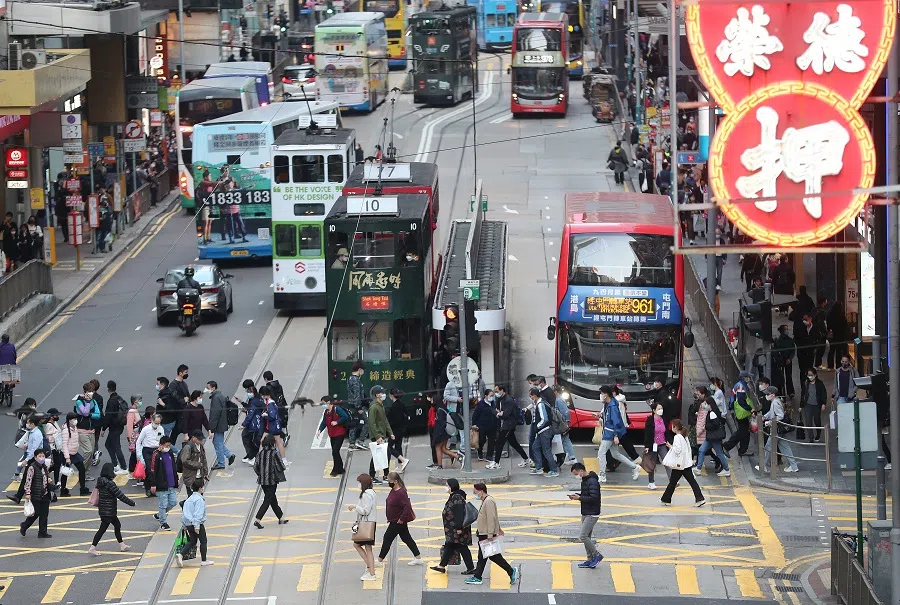
He felt that many of the changes seen in Hong Kong’s economy over the past five years, including shifts in consumer behaviour in both mainland China and Hong Kong, were more heavily influenced by the pandemic and post-pandemic recovery, as well as associated economic effects, than by political factors such as the national security law.
Over the past five years, those involved in national security law cases have been limited to opposition political figures and organisations in Hong Kong, with investors and businesses largely unaffected. The only possible exception, Tsui noted, might be CK Hutchison, which received a warning in March this year over the sale of a port in Panama, with authorities stating that national security laws could be used if necessary.
CK Hutchison: no official mention of national security law
According to Tsui, even in the case of CK Hutchison, it was only pro-Beijing media commentators who invoked the national security law — there was no official mention of it.
When Hong Kong Chief Executive John Lee responded to the issue in March this year, he merely stated that the matter would be handled “in accordance with the law and regulations”, without addressing any suggestions about invoking the national security law.
Tsui believes that Beijing may have been “testing the water” through media outlets to gauge whether enough pressure could be exerted on the company. “It’s unlikely that the national security law would be used at this point,” he said. “I think they kind of realise that this is not good for Hong Kong, and in turn not good for China.”
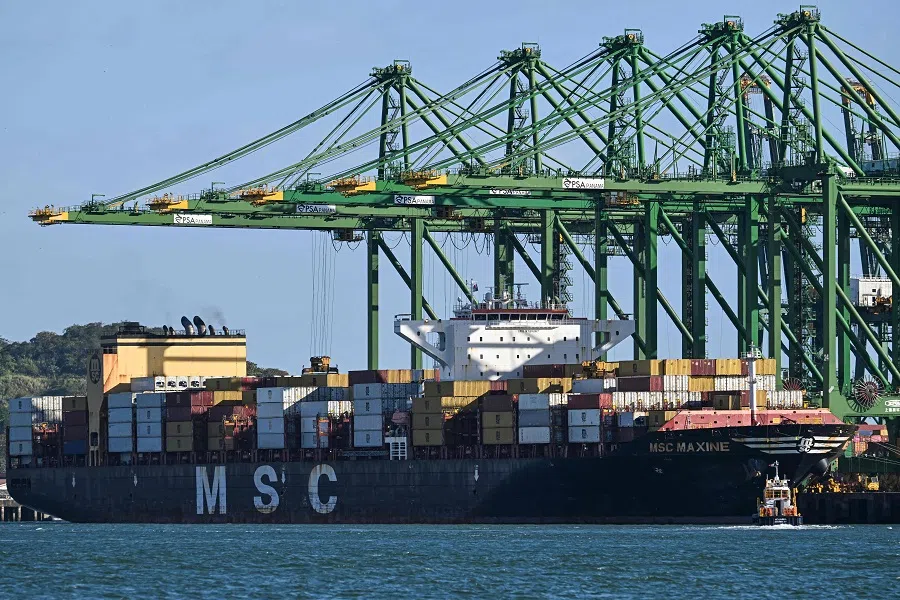
By 2024, the number of regional headquarters based in Hong Kong finally saw its first increase in five years.
When interviewed, Hong Kong investment expert Kenny Siu said there is no need to magnify the impact of the national security law, because true investors ultimately care about whether a project is good, whether it makes money, and whether funds can move freely. “If I were a foreign investor and there was no money to be made, honestly, I’d leave too,” he said.
An extension of China-US rivalry
The rivalry between China and the US has been intensifying since 2018. Roach’s argument that “Hong Kong is over” had highlighted that the city, being trapped in the crossfire of this rivalry, cannot escape unscathed.
Veteran Hong Kong media figure Chan King-cheung said in an interview that as the US now plans for a long-term strategic rivalry and confrontation with China, it is “lumping Hong Kong [traditionally seen as China’s window to the outside world] together with the mainland” in its approach. The impact of the Hong Kong national security law on Hong Kong’s economy is seen as an extension of China-US competition.
In July 2020, the US government, citing the implementation of the Hong Kong national security law, deemed Hong Kong as no longer distinct from other mainland Chinese cities, terminating its preferential treatment as a separate customs territory.
In November 2023, the main US federal government pension announced that it would exclude investments in mainland China and Hong Kong from its fund; last year, US authorities have also limited US investments in China’s semiconductor, microelectronics and quantum information technology sectors.
“Hong Kong’s status as an international financial centre depends solely on whether it can attract international investors. When it is being contained and is unable to attract international investors, it is no longer an international financial centre.” — Kenny Siu, Investment Expert, Hong Kong
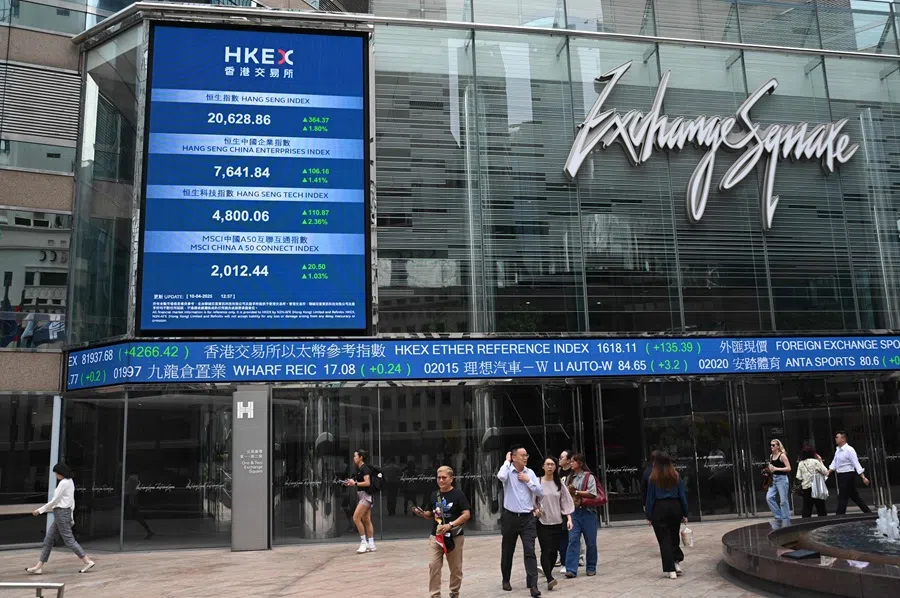
Siu described that the Hong Kong stock market was almost “strangled by [then US President Joe] Biden”. With decreased participation from foreign investors, there were days when the daily turnover of the Hong Kong stock market fell to just tens of billions of Hong Kong dollars, resembling a “pond with nothing but just water and fish” (a Cantonese saying, refers to a situation where funds simply circulate within a closed loop), which was incomparable to the usual turnover of hundreds of billions a day.
“Hong Kong’s status as an international financial centre depends solely on whether it can attract international investors. When it is being contained and is unable to attract international investors, it is no longer an international financial centre,” noted Siu.
Following US President Donald Trump’s return to the White House, although China-US competition has yet to cease, due to rifts in the US’s relationships with its allies and the US economy and financial market falling into turmoil due to the tariff war, as well as international funds diversifying to avoid risks, the Western containment of China and Hong Kong appears to have somewhat eased instead.
New opportunities for Hong Kong
Roach has thus revised his stance, believing that amid the new international situation, although China and the US are nearing decoupling, this has instead brought more opportunities for Hong Kong.
For example, following CATL’s listing, fast fashion retailer Shein is also considering switching its IPO to Hong Kong from London. It was reported that over 160 companies are waiting to list in Hong Kong, among which many are mainland Chinese enterprises. Several major banks are already predicting that Hong Kong is on track to become the top global venue for IPOs this year.
Hong Kong Financial Secretary Paul Chan said on 22 June that the total deposits in Hong Kong banks have already reached HK$18 trillion this year, while net capital inflows of registered funds have exceeded US$44 billion year-on-year, representing a growth of nearly 300%. This reflects that geopolitics presents both challenges and opportunities.
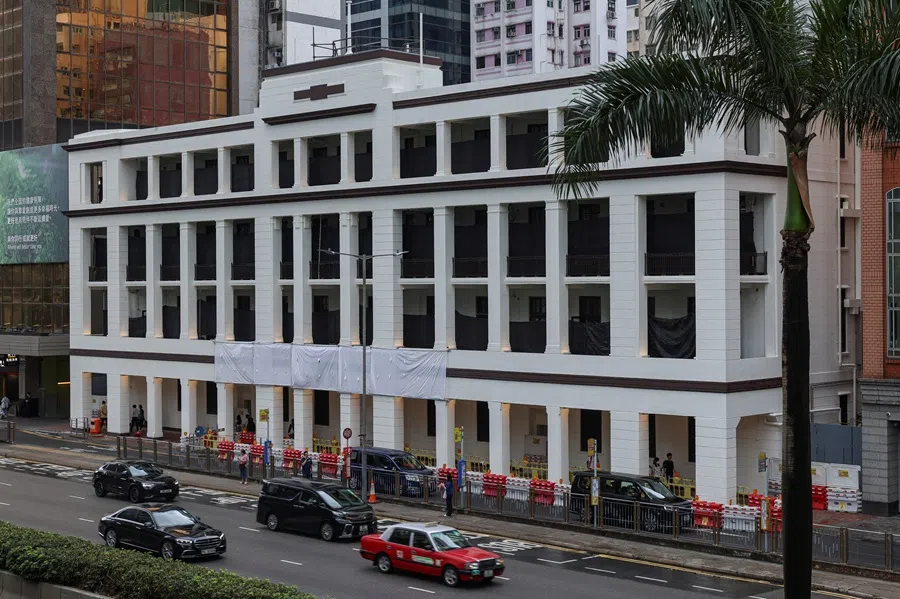
Beijing has also established the world’s first intergovernmental legal organisation dedicated to resolving international disputes through mediation, known as the International Organization for Mediation, in Hong Kong, which would further enhance the city’s global influence. Tsui said this demonstrates that Beijing still hopes to leverage Hong Kong’s position as an international hub, which is a very positive signal for Hong Kong.
Historically, apart from the mainland, Hong Kong also depended on the US and the West. However, given current geopolitical risks, it is now also exploring opportunities in the Middle East and Southeast Asia. — Chan King-cheung, a veteran media figure, Hong Kong
Some think that the nature of Hong Kong’s position as an international financial centre is no longer the same as before; it has now become a financial centre more focused on China. For example, mainland Chinese companies currently account for 70% of the Hang Seng Index’s weighting, up 10 percentage points from 2021. The proportion of daily trading by mainland investors has also risen to about 45% this year.
Interviewed observers agreed that this development is inevitable. Among them, Chan said that Hong Kong’s size necessitates its reliance on a larger entity. Historically, apart from the mainland, Hong Kong also depended on the US and the West. However, given current geopolitical risks, it is now also exploring opportunities in the Middle East and Southeast Asia.
Hong Kong’s close ties with the mainland also means that its economy has been affected by the mainland’s slowing economy over the past few years.
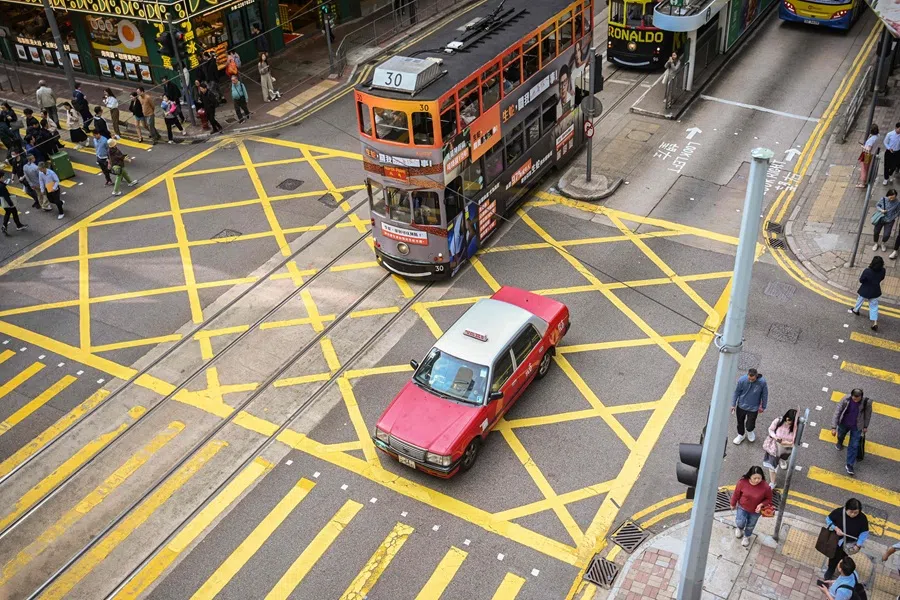
However, the emergence of China’s generative AI startup DeepSeek earlier this year proved to be a big hit. Additionally, since the third quarter of 2024, the Chinese government has also introduced a series of policy measures targeting the real estate market, stock market, private enterprises and foreign investment, including relaxing regulations and encouraging mainland Chinese companies to list in Hong Kong. These have all rekindled confidence in China’s development prospects and in investing in Hong Kong.
However, at the same time, the defaults in the mainland real estate sector, along with the government’s crackdown on internet platform companies, the gaming industry and the private tutoring industry, perhaps still feel like yesterday to investors.
A Bloomberg report highlighted that although high-tech sectors are in Beijing’s good graces now, it could be a risk for Hong Kong in the long run, rendering a heavier portion of Hang Seng Index members susceptible to China’s policy changes.
This article was first published in Lianhe Zaobao as “香港国际金融中心强势回归”.





